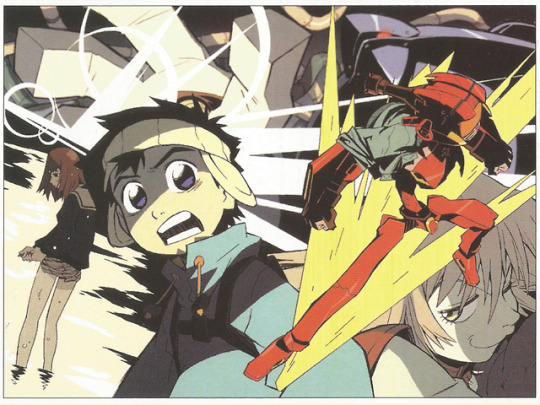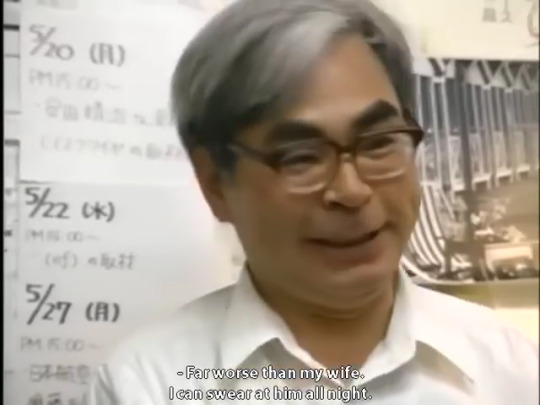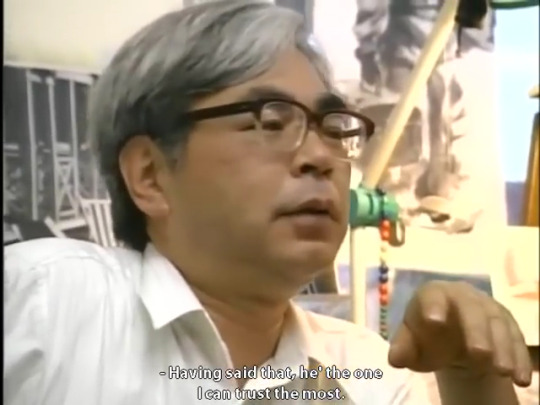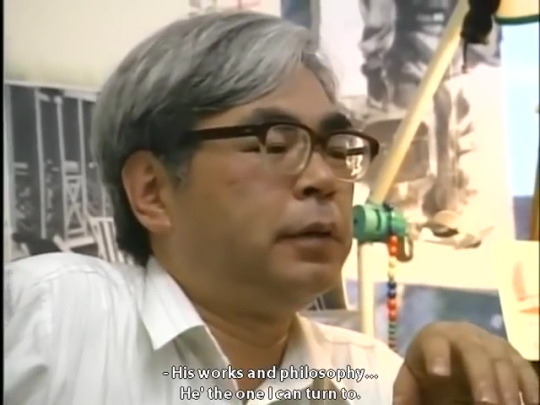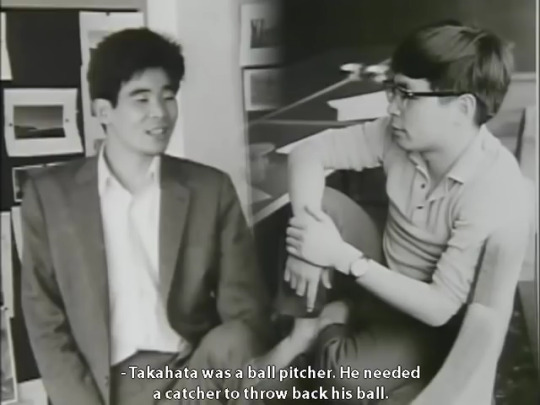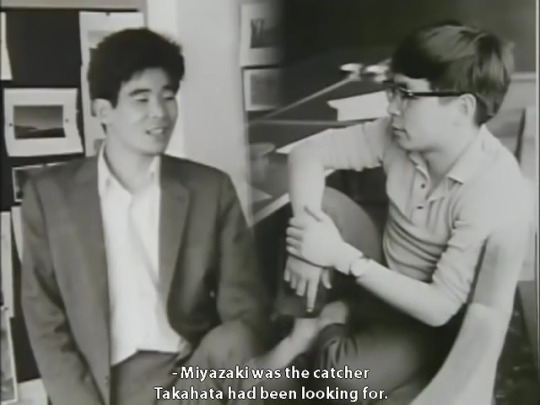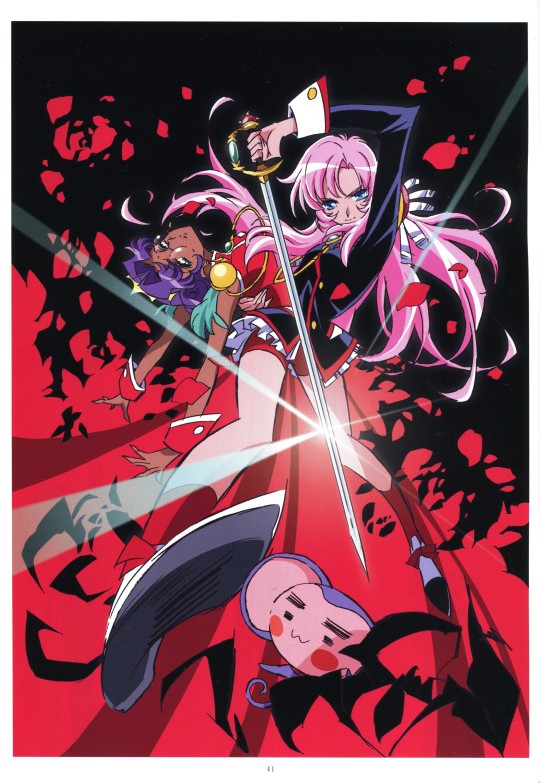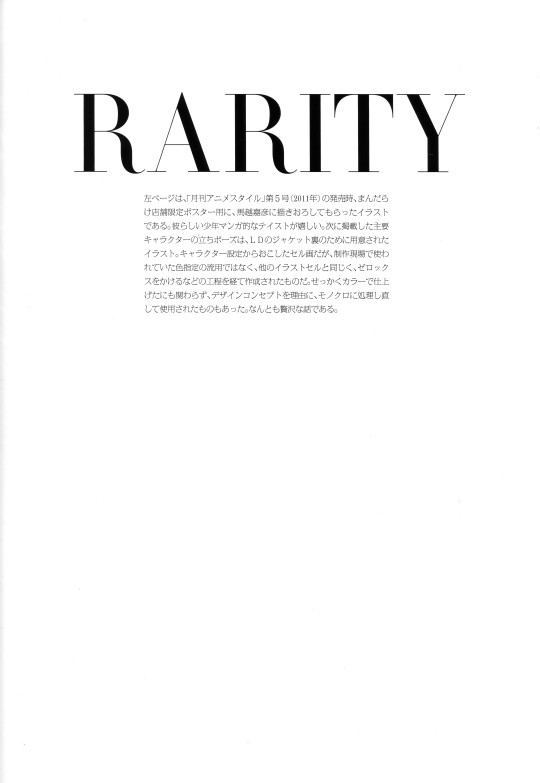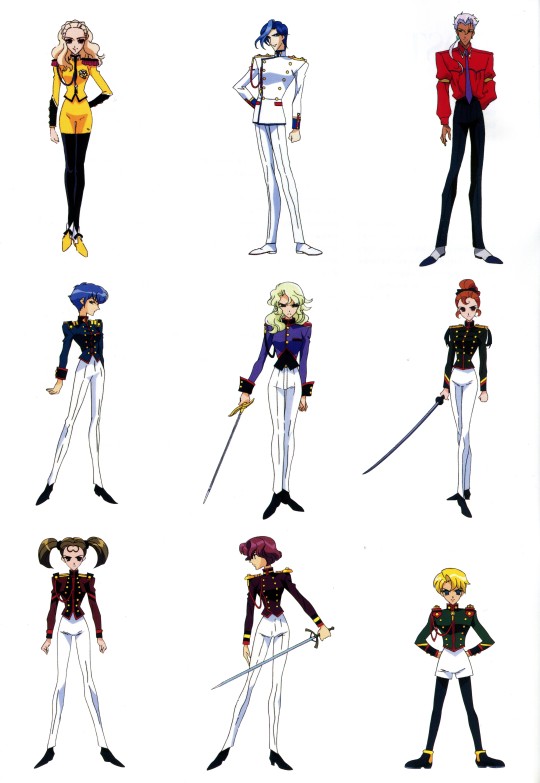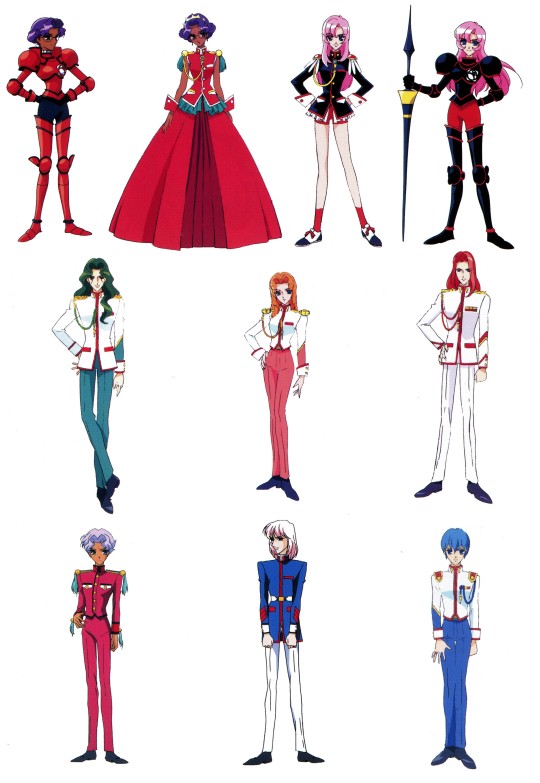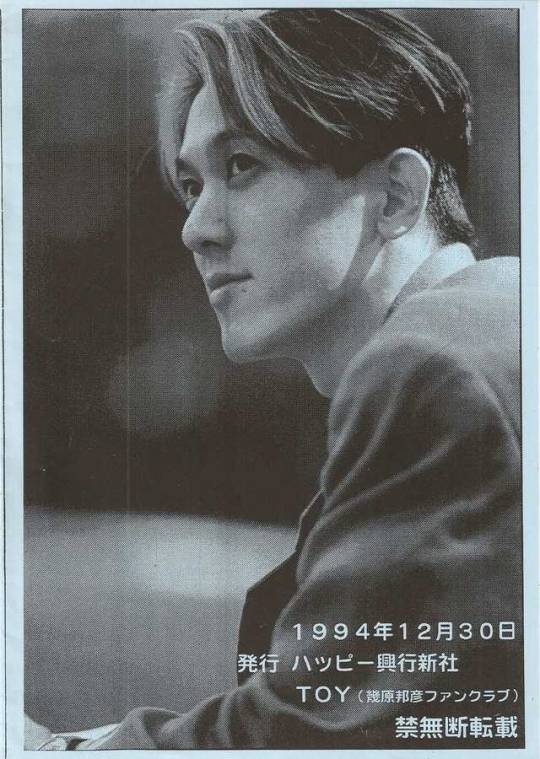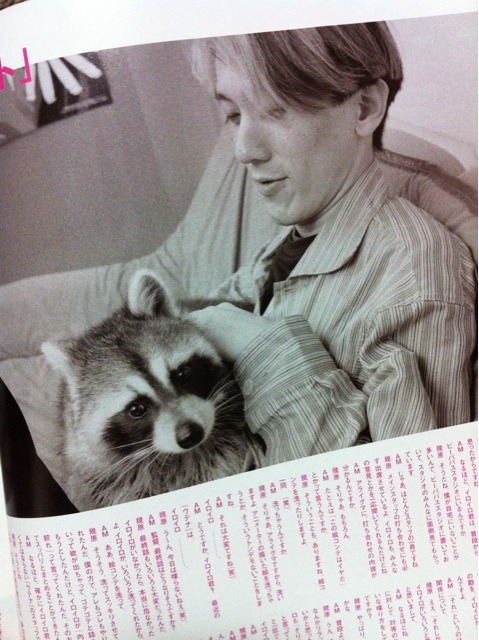Photo
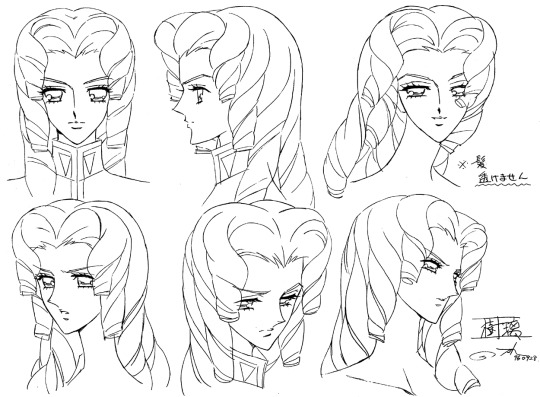
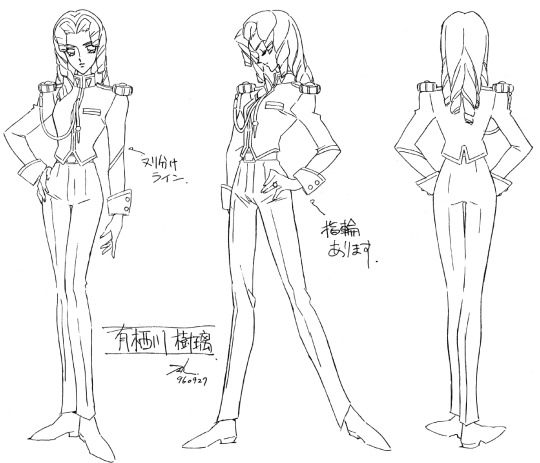
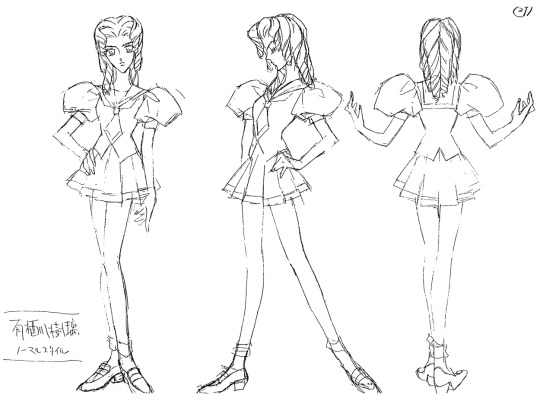
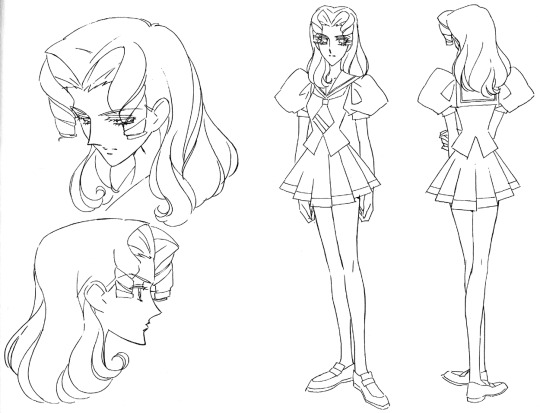
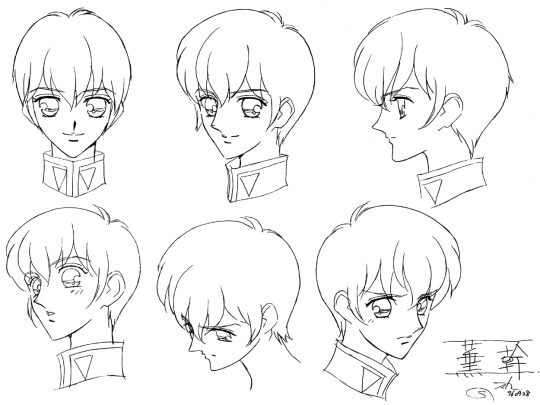
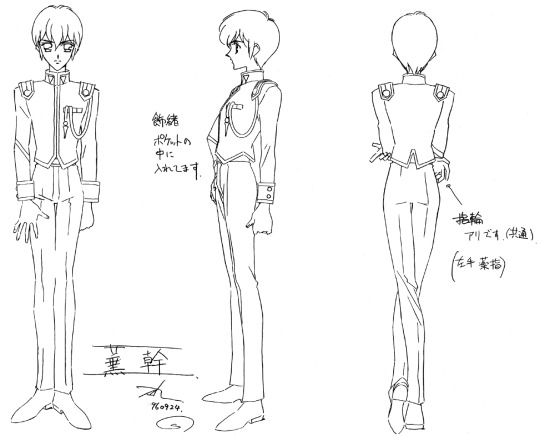
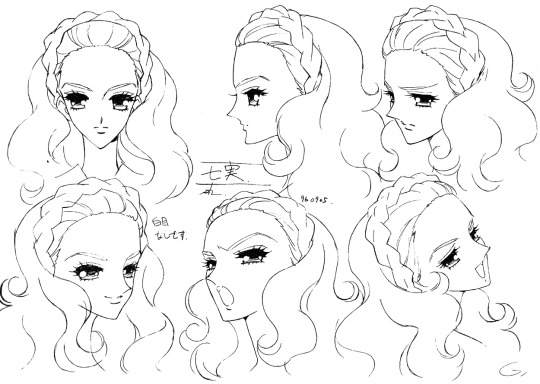
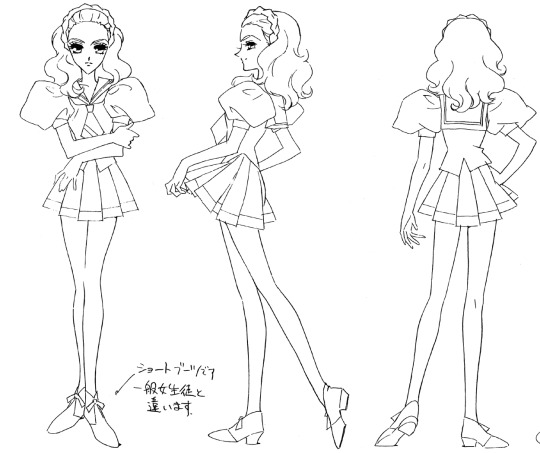
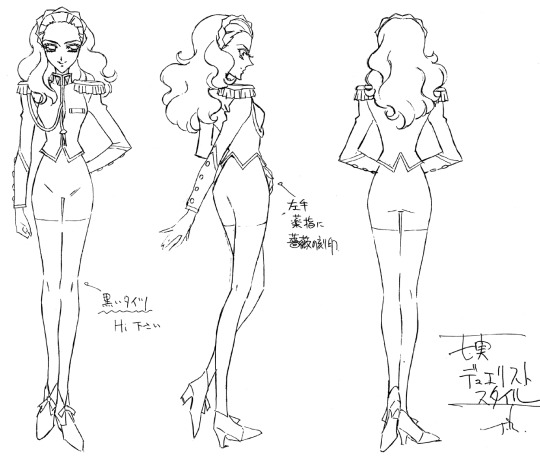
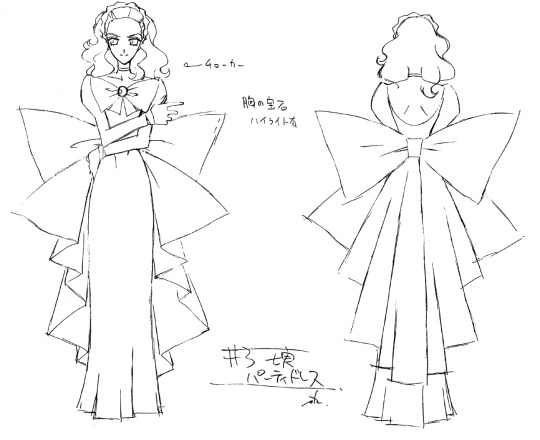
Revolutionary Girl Utena (1997) - Juri Arisugawa, Miki Kaoru, And Nanami Kiryuu Character Designs
184 notes
·
View notes
Photo
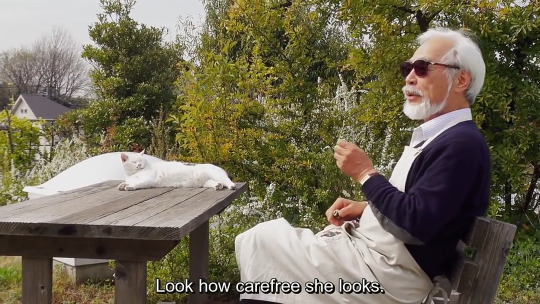
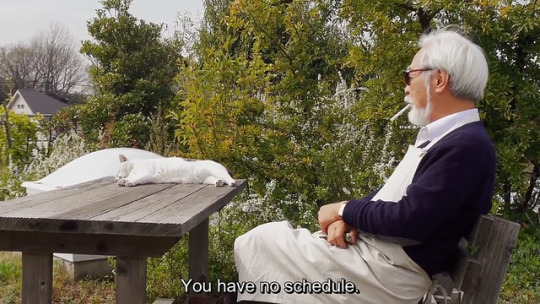
The Kingdom of Dreams and Madness (2013)
221K notes
·
View notes
Photo
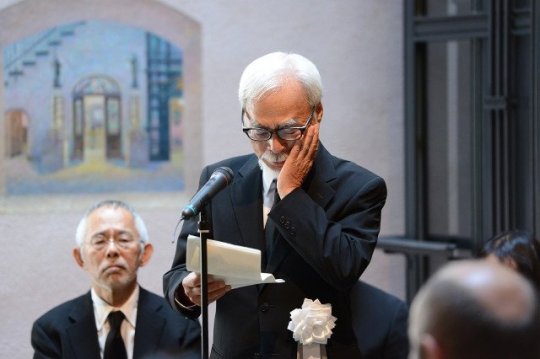
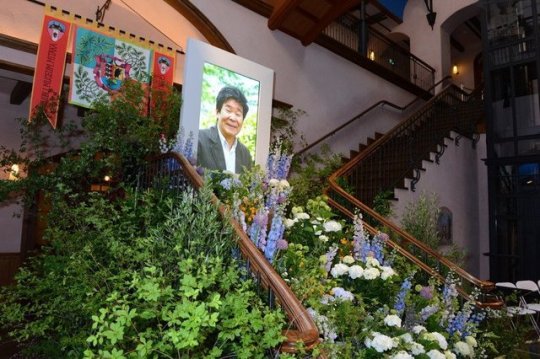
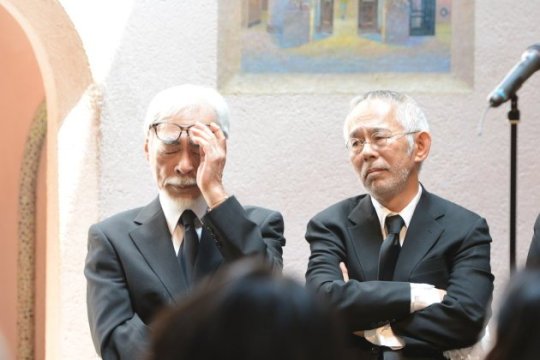
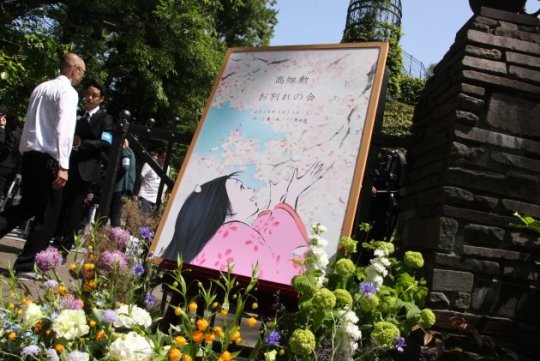
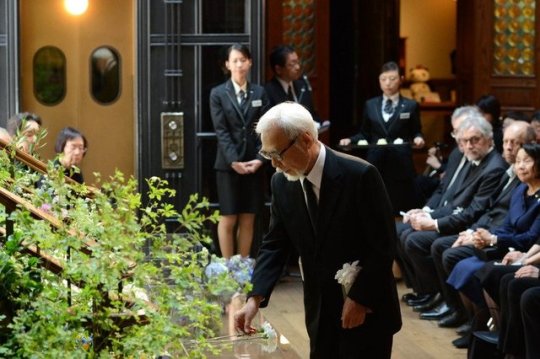
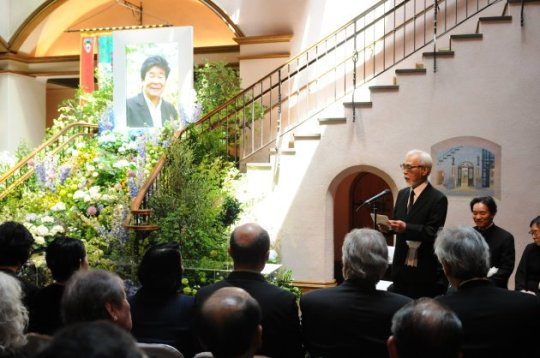
“I thought you would live to 95. Thank you, Paku-san. I will never forget you. You spoke to me for the first time at the bus stop after the rain 55 years ago.”
A ceremony for Isao Takahata has been held today in Tokyo. About 1,200 people, including friends and anime fans, gathered to bid farewell to the Oscar-nominated director, who died last month at age 82.
Among them, his best friend, film director Hayao Miyazaki, who thanked him for everything they accomplished together.
(x)
8K notes
·
View notes
Text
““How many books do you read a year?” That question tells me a lot about the people I’m working with. Once, I was chatting with a young person who, “wants to be a screenwriter.” So I asked, “Any interesting book recommendations?” I was sure I was going to get a litany of popular light novel titles. But, he just responded, “I don’t read books.” I was shocked. I’ve got something of a complex about the act of “reading books.” Because when I was in middle school, one of my classmates claimed to have read “200 books in a year.” I couldn’t stand him. I always believed, “the number of books you read is meaningless.” When I was in college, “a certain book” fell into my hands. This book had some shocking contents. It changed the values I’d held up until then. And then I remembered, that that kid back in middle school had read it back then. I broke out into a cold sweat. He’d already experienced the same shock I’d just felt from it as a college student, in middle school? I have no contact with him now, so I have no idea if that’s significant at all. But, I think this all stems from my impatience [to learn things I “wanted to] know” and [those I felt I] “must know.” There was no way I could have just known that that book would change my life, I happened upon it. And thus my impatience. That sort of information was nowhere to be found on the internet… And so, when I met a young person who, “wanted to be a voice actor,” and I asked, “Have you read any interesting books lately?” I got the response, “I don’t really read books.” It shocked me. I think being able to “interpret dialogue and stage directions” are critical skills for an actor. I think reading books is so important. Because when someone reads aloud, you’re getting their interpretation of the piece.”
— — 幾原邦彦 (@ikuni_noise) January 21, 2013
81 notes
·
View notes
Text
Miki: I'm sorry guys. And Juri and Nanami.
Juri: "Guys" is fine; I don't mind.
Miki: No, it's not right. We need to come up with something non-gender specific. How do we feel about "team"?
Nanami: "Fellow End of the World Minions"?
Saionji: "The Saionjis"?
Touga: "Touga's Stable of Hoes"?
187 notes
·
View notes
Photo
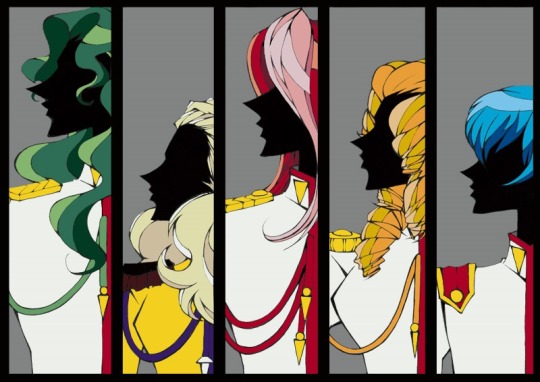
Student Council (Revolutionary Girl Utena)
by カイゼル
268 notes
·
View notes
Text
“Everyone needs to hear someone say, “Nobody else will do. It has to be you,” sometime in their lives, even if it only happens once. Just once is enough. As long as you can feel sure those words were sincere, you can live through anything, no matter how painful.”
— Kunihiko Ikuhara
3K notes
·
View notes
Photo
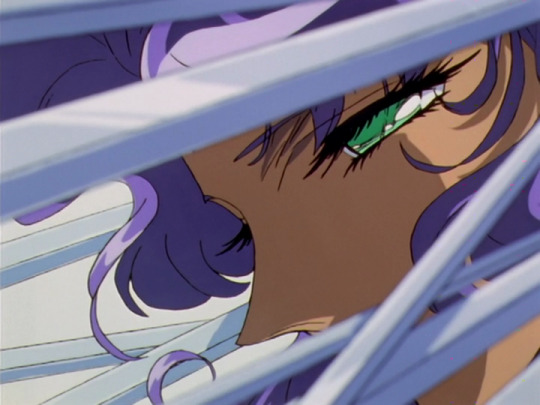
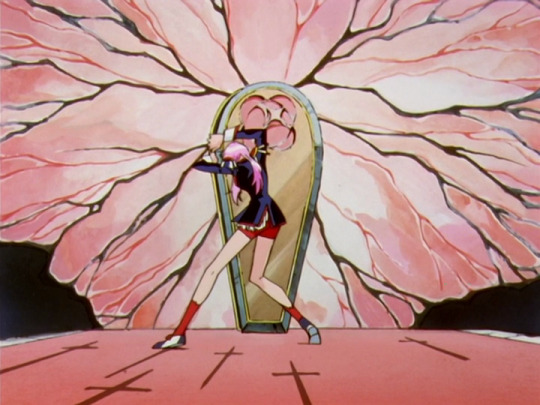
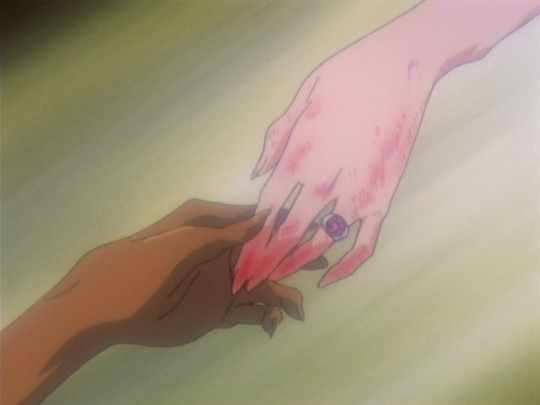
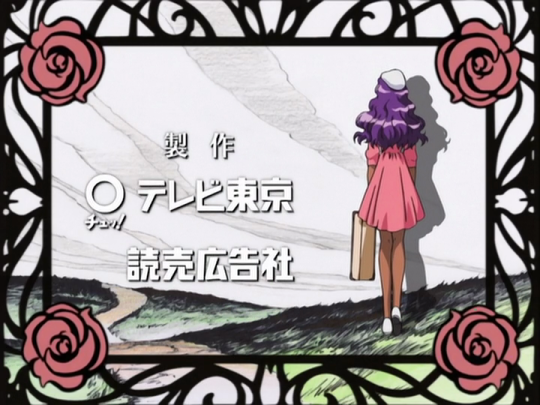
Ikuhara's Episode Commentary:
39: "Someday, Together, We'll Shine"
There are two meanings to the Japanese word utena. One is “the calyx of a flower.” That’s also the meaning of the title, of course. The thing that supports the beautiful petals; the one with the noble heart. And the other meaning of utena is “tall tower or pedestal.” We translated this into a visual: the tower at the center of Ohtori Academy, the one with the Chairman’s room on the top floor. And the dueling arena located deep in the woods is the same.
In the early stages of production, when the story wasn’t firmly established yet, this was one of the aspects I most wanted to visualize and produce for the screen.
A world where demons roam. In its center, a tower called the “Tower of Revolution.” Whosoever can remain victorious in his battles against the demons can reach the pinnacle of the Tower of Revolution, and at the same time receive the power to revolutionize the world; the power that changes the rules of the world.
However, when he reaches the pinnacle, he learns the world’s govering laws.
He faces the ultimate choice: will he stay nobly, beautifully powerless? Or will he accept ugliness into himself and gain absolute power?
He desired both.
Or rather, perhaps he couldn’t choose either.
His mind in anguish, he divided himself in two. His “noble heart,” and the “adult with absolute power.”
And so.
With one last wish that the day would come when someone would awaken him, the “noble heart” that had lost its body, in other words the prince, fell into a deep sleep.
Early on in the series’s conception, I kicked around the idea of placing something like the above at the heart of the story. Later, after several changes, it became the tale as you know it, but without doubt, he did reach the pinnacle of the Tower of Revolution.
It was a place where “eternity” dwelled.
And “eternity” turned out to mean perpetual sleep.
The prince (Akio) who became an adult while in perpetual sleep lost something. What he lost was “the power to create an enjoyable future.”
Revolution means gaining “the power to imagine the future.”
The prince chose to sleep on, and the princess chose to wake up. At the top of that tall tower, the princess bid farewell to the prince. No - she wasn’t the princess any longer. She quit being “a person (thing) ruled by someone.” The victory bells rang, but there was no “tower (rule)” beyond them now. She’d learned where freedom lay. She crossed the threshold of that “Door of Revolution” which had always been closed for her before, and began walking. The “girls’ revolution” lay in the girl’s future.
“Wait for me… Utena.”
The world (the stage) is free and wide.
3K notes
·
View notes
Text
Chiho Saito: Oh boy, I sure am interested in working on a manga inspired by Rose of Versailles about a tomboyish girl and her complex romantic life. I mean, I don't want it to be *too* complex or, like, *weird* but--
Kunihiko Ikuhara: *slides into view on hood of car being driven by elephant* I suppose you have no choice but to revolutionize the world
534 notes
·
View notes
Photo
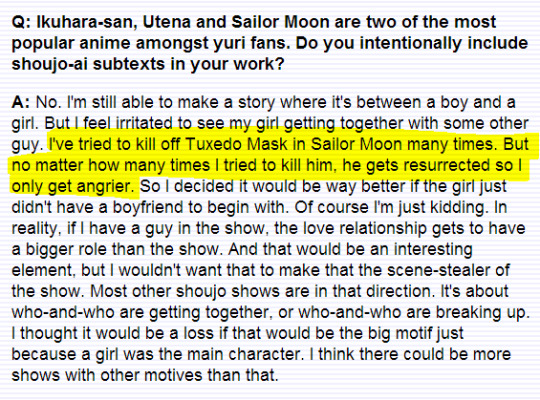
Ikuhara was constantly trying to kill off Tuxedo Mask.
1K notes
·
View notes
Text
“Those who reject that place are, conversely, rejected by it as well. This is the nature of systems: the moment you reject them, you are forced to realize that they’re the very ground you’re standing on.”
— Kunihiko Ikuhara
224 notes
·
View notes
